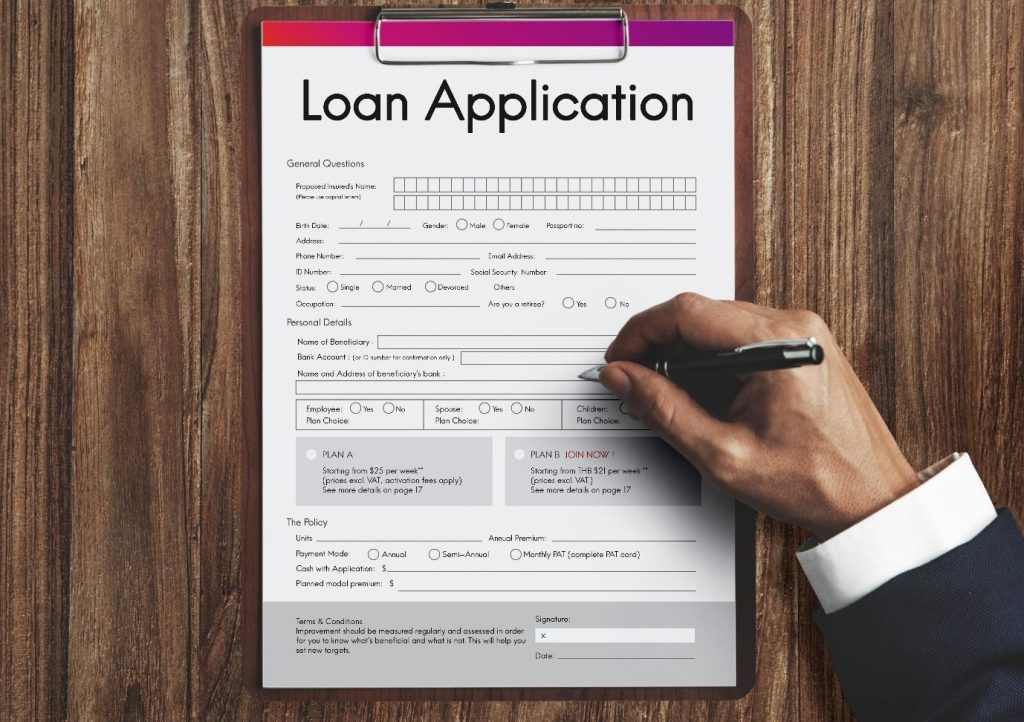If you’ve ever had a personal loan rejected, you know how exasperating it can be, especially when you need funds urgently. Regrettably, this situation is all too familiar for many.
In Malaysia, personal loan rejection is a common occurrence, and it can be frustrating not to know why.
Fortunately, there are several prevalent causes for personal loan rejections, and understanding them can help improve your chances of getting approved in the future.
Continue reading to discover the top four reasons behind personal loan rejections in Malaysia and explore alternative solutions for overcoming these obstacles.
Why is it Important to Know Why Your Loan Was Rejected?

While it might be disheartening to receive a rejection, understanding why your loan application was rejected is vital.
It enables you to identify and address the issues preventing you from securing the financing you need.
Here are several other vital reasons why knowing why your loan was rejected is essential:
- It helps you identify and correct errors in your loan application.
- It enables you to provide additional documentation to support your application or offer suitable collateral to secure the loan.
- It saves you time and effort, where instead of applying blindly and facing multiple rejections, you can work on addressing the specific issues that led to the rejection.
- It allows you to adjust your loan amount or repayment term to match your lender’s criteria better.
- It helps you make informed decisions to avoid future rejections and increase your chances of loan approval.
4 Common Reasons for Personal Loan Application Rejection

1. High Debt-To-Income Ratio
Having a high debt-to-income ratio is one of the most common reasons why you could have had your personal loan rejected. But what is it?
A debt-to-income ratio measures an individual’s monthly debt payments in comparison to their monthly income.
Lenders use this ratio to determine whether an individual can afford to take on additional debt.
Unfortunately, when a person has a high debt-to-income ratio, it suggests that they may face difficulty making timely loan payments.
Consequently, lenders perceive such borrowers as high-risk and may decline their loan applications.
To lower your debt-to-income ratio and enhance your prospects for loan approval, you can:
- Pay off high-interest debts (e.g. credit card balances) to lower your debt-to-income ratio and reduce the interest you pay over time.
- Increase your income to have more disposable funds to spend on your loan payments.
- Reduce your monthly expenses to allocate more funds towards your debts and improve your financial standing.
2. Low Credit Score
A credit score represents a person’s creditworthiness by considering their credit history, which includes information about their past loans, credit cards, payment history, and other financial activities.
Lenders will assess your credit score when you apply for credit cards, personal loans, or any type of credit to gauge whether you are a low or high-risk borrower.
A high credit score implies you have a history of responsible credit management, making timely payments, and keeping your credit utilisation low.
However, a low credit score indicates you have had problems managing credit, such as late payments, high credit utilisation, or even bankruptcy. In this case, lenders may consider you a high-risk borrower and be more reluctant to approve your credit application.
And, even if they do approve your application, they may charge higher interest rates or impose stricter terms to compensate for the increased risk they are taking.
However, rest assured because there are various measures you can take to better your credit score, one of which is ensuring you pay your bills on time every month.
Additionally, avoid opening new credit accounts (unless necessary), as having too many accounts can hurt your score.
Last but not least, be patient, especially if you were rejected due to poor credit. This is because late payments remain on your CCRIS credit report for at least one year.
3. Incomplete or Inaccurate Information
Incomplete or inaccurate information is another reason why personal loan applications are rejected.
It is important to submit the necessary documents to ensure that the lender has all the information needed to make a decision, including:
- Identification documents
- Income documents
- Employment verification
- Credit reports
Submitting incomplete or inaccurate information can reduce the likelihood of future approval and negatively impact your credit score.
Moreover, submitting fraudulent documents is a criminal offence in Malaysia, resulting in fines, imprisonment, or both.
Therefore, to avoid submitting incorrect documents, borrowers should:
- Double-check the information provided.
- Ensure the details on your documents match the information on your loan application.
- Seek assistance from the lender or a financial advisor if necessary.
4. High Financial Commitment
Lastly, high financial commitment also contributes to your personal loan being rejected.
Financial commitment refers to an individual’s total monthly expenses, including:
- Pawns
- Property or mortgage payments
- Car loans
- Personal loans
- PTPTN loans
- Credit card loans
Lenders use this information to determine whether or not the applicant can afford to make their loan repayments.
It is crucial to know that having a high financial commitment can adversely affect an individual’s financial well-being. Some of these consequences include:
- Limited ability to cover unexpected expenses or make timely loan payments.
- Rejected loan applications as lenders may believe that the applicant cannot repay the loan.
- Having more stringent loan terms and conditions, such as requiring collateral, shorter loan terms, or higher down payments to secure the loan.
- Being charged higher interest rates to offset the perceived risk of lending to individuals with high financial commitments.
In order to reduce your financial commitment and improve your chances of loan approval, creating a budget to identify areas of overspending can be helpful.
You can also:
- Consolidate high-interest debt
- Refinance existing loans with high-interest rates (e.g. mortgage loans)
- Avoid taking on additional debt, particularly for non-essential purchases
Read More: AKPK Status: How Refinancing Can Help You Improve Cash Flow After AKPK
Other Solutions for Rejected Applications in Malaysia

Here are two alternative solutions available in Malaysia to secure the funding you need if your loan application keeps getting denied:
1. Apply with Another Bank
Understanding the specific criteria and methods a bank uses to evaluate your creditworthiness increases your chances of getting approved for a loan.
For example, some banks may emphasise credit history and scores more, while others may prioritise an individual’s income and debt-to-income ratio.
2. Consider a Bank Loan Agency
A bank loan agency is a financial institution or an individual authorised by a regulatory body to provide loans to borrowers.
They operate as intermediaries between lenders and borrowers and can offer various loan products, including personal loans, business loans, mortgage loans and more.
One of the advantages of working with a bank loan agency is that they must comply with government regulations and guidelines and ensure fair lending practices.
This means that borrowers can expect transparency in loan terms and conditions, as well as reasonable interest rates and fees.
In addition, bank loan agencies can help borrowers understand the reasons behind their application rejections and guide them on how to improve their chances of approval.
For instance, if there are any concerns or issues with your CTOS report, a bank loan agency will work towards resolving those issues on your behalf.
Similarly, suppose your income documents are not strong enough to meet the bank’s requirements.
In that case, the loan agency will advise how you can strengthen your income documentation for approval.
Read More: Saving for Retirement Malaysia: How Refinancing Your Mortgage Can Help
How Bluebricks Can Help You with a Loan Rejection
Bluebricks is a reputable loan agency in Malaysia with in-depth knowledge and expertise to help our customers get their bank loans approved quickly and efficiently.
Our services also extend to providing fast cash loan solutions for individuals who require urgent funds.
Personal Loan Rejected Services
We offer a range of services to assist individuals whose loan applications have been rejected by banks or other financial institutions.
Our comprehensive personal loan rejected service helps borrowers identify the reasons for their application denial and develop a strategy to increase their chances of approval.
We also assist in resubmitting the application to our client’s preferred bank on their behalf.
Personal Loan Rejected – FAQs
Are you curious about rejected personal loan applications in Malaysia? We have compiled three of the most frequently asked questions and answers to help broaden your understanding:
Each application you make for a personal loan will be recorded in your CTOS report, which is a creditworthiness report. If you submit over three attempts, many banks may no longer accept your application.
As a result, your CTOS score will gradually decrease, potentially reaching a low point or even falling into the POOR category.
If your loan application was rejected twice, you should seek assistance from a reputable loan agency. Otherwise, the likelihood of your loan being approved is considerably low.
A loan agency can provide you with the necessary support to secure loan approval. However, exercising caution or avoiding agencies that request upfront fees is crucial.
Plus, bank loan agency fees typically tend to be high. Bluebricks, however, offers competitive rates ranging from 10% to 30% and our fees are only charged upon successful loan disbursement.
The loan approval or denial process generally occurs during the evaluation and underwriting stage.
During this stage, the lender evaluates the borrower’s creditworthiness by reviewing their credit history, income, debt, and other relevant financial information.





